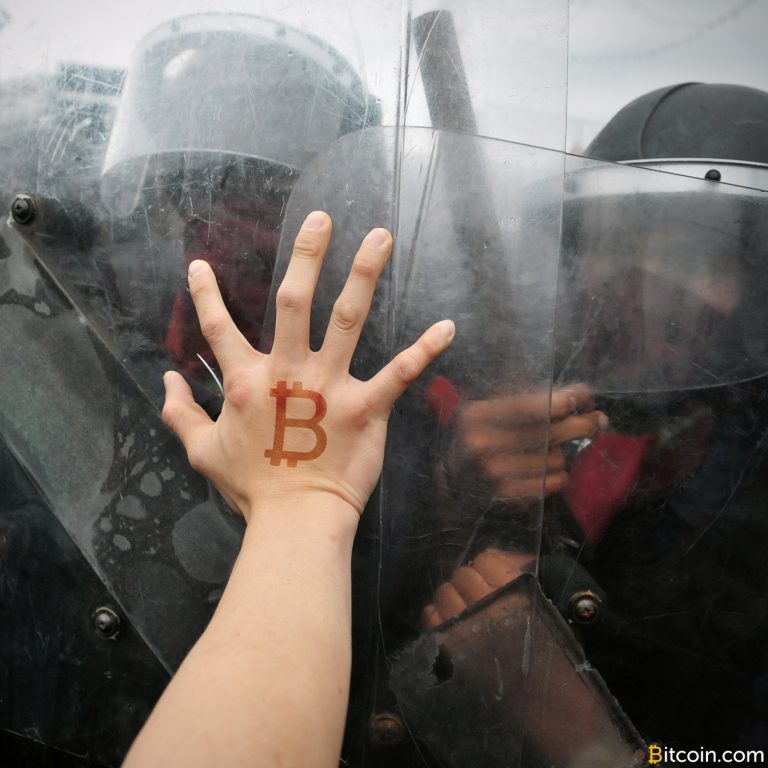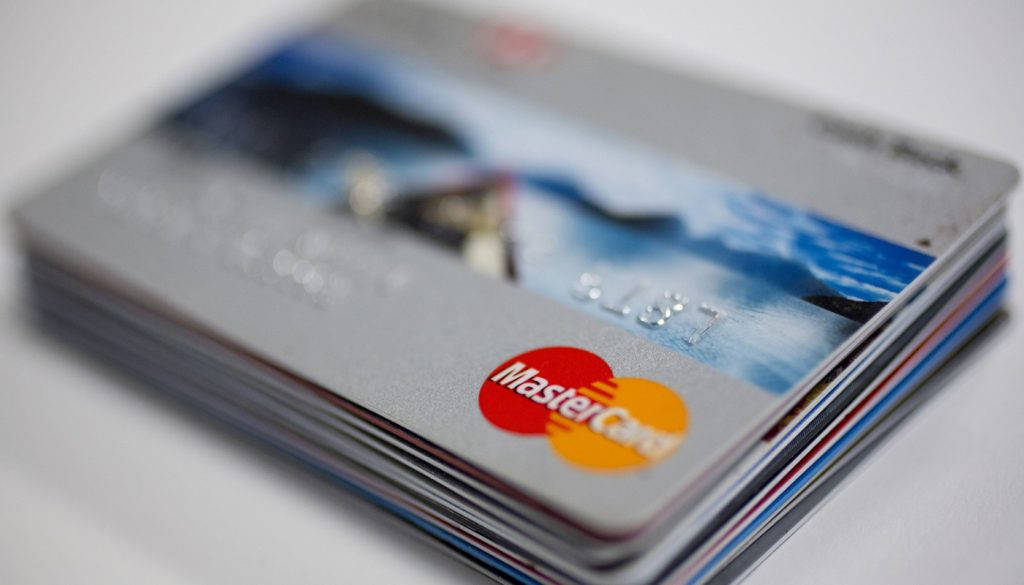
The Satoshi Revolution: A Revolution of Rising Expectations
Section 4: State Versus Society
Chapter 9, Part 2
Crypto, and the Structure of Class Warfare
The wall separating state and society is crumbling. Or, rather, the state is taking a jackhammer to it in an aggressive attempt to control every aspect of productive and cooperative life…The people you deal with on a daily basis are ceasing to be good neighbors, honest merchants, and disinterested strangers. They are becoming state informants who monitor your expression, your money, your behavior and attitude in order to report you to the authorities. They are ceasing to be “society” and becoming instead “the state.”
–Murray Rothbard
Cryptocurrency has an advantage that almost every other alternative money in the past has lacked. It does not mimic state-issued currency or state-controlled transfer systems, such as banks. Its revolutionary structure and function are as uniquely compatible with society as they are antagonistic to the state.
State versus society: Libertarian class analysis is based on the interaction of the two categories, which are in irresolvable conflict with each other. The structure of each class–the arrangement of their parts according to a unifying theme—are also antagonistic. Into this analysis, crypto enters with a framework that rebukes the state and provides society with what it has sadly lacked: a free-market money for the average person. The compatibility of crypto and the free market and crypto is born out by their remarkably similar structures. (“Society” and “the free market are used as synonyms here because, in its broadest definition, the free market” is more than an economic dynamic; for example, there can be a free market of ideas. Broadly defined, the term refers to any free exchange.)
The Structure of State, Society, and Crypto
“Form follows function” means that the basic shape of a thing is determined by its purpose. For Frank Lloyd Wright, the two were inseparable. “Form follows function-that has been misunderstood,” Wright observed. “Form and function should be one, joined in a spiritual union.”
This is true of government or the state; it is also true of society.
The function of a state is to regulate society in a manner that maintains its own existence and privileges. The state uses force or the threat of force to impose its policies; behind every law is a gun and its intimidation value. The purpose of the state defines its form; coercive agencies, such as law enforcement and the military, abound. Intrusive practices, such as the widespread collection of personal data, are the norm. In turn, the agencies and practices require intense centralization and bureaucracy.
The function of society is as a venue where individuals interact peacefully for mutual benefit, whether that benefit is defined in economic, spiritual, or other terms. Society is voluntary, with legal obligations arising only from contract and consent. Because individuals are diverse and unpredictable, the form of society is fluid, quick to respond, and highly decentralized.
The two classes are at war because the state produces no wealth of its own; it takes what is needed from society through taxation in its various manifestations, including inflation. To do so, the state asserts its authority over the peaceful behavior of others, which the others resent.
The state does more than loot society, however. It usurps the functions of society—the interactions that should occur on the free market–such as road construction and financial institutions. Over time, segments of society are reshaped to resemble arms of the state. Banks are a prime example. Free-market banks would serve the needs of customers, including privacy. Current banks are information gathering centers for the state, with customer requirements being secondary.
In the past, the state’s encroachment upon society enjoyed a huge advantage; the state controls the legal definition of money, its issuance and much of its flow. Society had to accept fiat, to tolerate monetary policies, and to live with banking rules. At least, society had no real choice until the explosion of cryptocurrency. Suddenly, individuals became their own banks, and they made their own exchanges…all without the state.
Crypto is the money of society, the money of people. This status is not negated by the fact that some people become ridiculously wealthy through crypto; the free market has always rewarded successful innovators and early adopters. The status is not damaged by crypto experiments that fail; the free market is a brutal laboratory, with many dead ends. Imprudent people, who lose money through foolish acts, discover that the free market is also a corrective mechanism, without compassion. Even fraud does not cast a shadow on crypto as the money of society. Fraud haunts all human activities, especially lucrative ones. And those who appeal to the state for a remedy should remember that the state is institutionalized fraud and theft. Over time, the free market tends toward self-regulation.
What can threaten crypto’s role as the money of society? The greatest danger is the drive to change the function and form crypto from being an expression of society into an expression of the state. The drive for so-called “respectability” involves regulation, state-issuance, and other measures that would reduce crypto to another form of fiat, another form of central banking.
Crypto and Society Share the Same Basic Form
One indication of crypto being the money of society is that the two have the same basic function and form. The function is to empower the individual; form follows. It is no wonder that crypto’s structure parallels that of society itself. The parallels include,
- A hard structure underlies them both. For crypto, it is the immutable blockchain that is remarkably immune to manipulation or exploitation; for society, it is the inviolable principle of non-aggression.
- The frameworks do not inhibit diversity. Their security and freedom encourage almost infinite innovations. A major reason: Adopting the underlying structure is not a matter of law but of choice, which is unrestricted thereafter.
- Third parties are not necessary for many of the transactions. For a complicated exchange, such as one that demands escrow, a third party is useful. Even then, however, the amount of trust required can be limited by strategies like getting in and out quickly.
- There is no barrier to entry. No state license, no permission, no legal forms.
- Both crypto and society are decentralized. Among the many advantages of this is that neither has a single point of failure where the entire system is vulnerable to bad actors.
- The individual is the locus of power. As long as a person retains his or her keys, that person controls their use. The parallel in society is the individual’s right to say “no.”
- Transactions can be pseudonymous or announced to the world, depending on individual preferences. Crypto purchased with a faux identity, which uses a different wallet for each transaction, can be almost as anonymous as cash.
- Exchanges are not ideological or political. Crypto and the free market are great levelers of traditional social distinctions, such as the race or religion of a buyer or seller.
- Crypto and society are both worlds in which wealth is based on merit, including the profits that properly come from taking risks that succeed.
By contrast, the structure of the state is antithetical to that of crypto and the free market. It is based on coercion rather than consent; it is centralized rather decentralized; its wealth comes from confiscation rather than merit. Form follows function.
Conclusion
There is a popular myth about crypto. Namely, that free and state-controlled crypto can co-exist. In theory, it is possible. In practice, it will not happen because state-issued or state-controlled crypto does not merely differ in terms of its origin but also in terms of its form. Crypto cannot serve both state and society; it cannot express both centralized control and decentralized choice. The two may exist in parallel for a time but, inevitably, the state will reach for a monopoly.
Crypto is becoming a new frontier in class warfare between the state and society. The state will try to reshape crypto in order to serve its own purposes. Instead of privacy and individual choice, state crypto will involve total disclosure and regulation. Instead of accessibility for all and the absence of trusted third parties, there will be licenses or bank-like exchanges becoming an unavoidable third party. The incredible benefit of crypto to society will be turned upside down, and it will become a benefit to the state.
State-issued or controlled crypto will be a bitter mockery of the original vision, but it is coming. And one of the major impacts of the Brave New money will be almost invisible; the basic form of crypto will become the opposite of what it was created to express. This goes with the function of crypto changing.
The best hope for free-market crypto is that concepts, such as decentralization, are so deeply embedded into its structure that a state-issue is doomed to fail. As a next resort, of course, the state will regulate what it cannot create. Society’s money will become a bit riskier and more difficult to use.
[To be continued next week.]
Reprints of this article should credit bitcoin.com and include a link back to the original links to all previous chapters
Wendy McElroy has agreed to ”live-publish” her new book The Satoshi Revolution exclusively with Bitcoin.com. Every Saturday you’ll find another installment in a series of posts planned to conclude after about 18 months. Altogether they’ll make up her new book ”The Satoshi Revolution”. Read it here first.
The post Wendy McElroy: Crypto and the Structure of Class Warfare appeared first on Bitcoin News.
via
Wendy McElroy

 ADGM is the international financial center in Abu Dhabi which collaborates with global financial centers, institutions, and regulators to “develop and supports member institutions with the regulatory framework, legal jurisdiction and attractive business environment they need for sustainable business growth,” its website describes. The Financial Services Regulatory Authority (FSRA) is the market’s watchdog. ADGM wrote:
ADGM is the international financial center in Abu Dhabi which collaborates with global financial centers, institutions, and regulators to “develop and supports member institutions with the regulatory framework, legal jurisdiction and attractive business environment they need for sustainable business growth,” its website describes. The Financial Services Regulatory Authority (FSRA) is the market’s watchdog. ADGM wrote:


 Expedia.com, one of the world’s largest travel sites offering booking services for flights, hotels, and car rentals, is currently not accepting bitcoin (BTC). This week, the news was shared on Reddit by traveling bitcoiners who expressed their disappointment with the absence of the cryptocurrency among the payment options. Bitcoin payments have been available on Expedia for years.
Expedia.com, one of the world’s largest travel sites offering booking services for flights, hotels, and car rentals, is currently not accepting bitcoin (BTC). This week, the news was shared on Reddit by traveling bitcoiners who expressed their disappointment with the absence of the cryptocurrency among the payment options. Bitcoin payments have been available on Expedia for years. No official announcement has been published on Expedia’s website, at least not in the
No official announcement has been published on Expedia’s website, at least not in the  The crypto payment option was offered through a partnership with the US-based crypto exchange and wallet provider
The crypto payment option was offered through a partnership with the US-based crypto exchange and wallet provider 

 BTC has maintained its significant lead as the most traded cryptocurrency, with BTC pairings producing roughly $125.6 billion USD worth of trade over the course of the last 30 days. Compared with May’s
BTC has maintained its significant lead as the most traded cryptocurrency, with BTC pairings producing roughly $125.6 billion USD worth of trade over the course of the last 30 days. Compared with May’s  The 30-day trade volume for BCH pairings dropped significantly this month, with June’s $14.7 billion in trade comprising a 47.5% drop from May’s $28 billion.
The 30-day trade volume for BCH pairings dropped significantly this month, with June’s $14.7 billion in trade comprising a 47.5% drop from May’s $28 billion.

 A report by the LA Times has looked into the increasing prevalence of ICO promoters employing the services of social media influencers in the midst of the prohibition on cryptocurrency advertisements on a number of leading social platforms.
A report by the LA Times has looked into the increasing prevalence of ICO promoters employing the services of social media influencers in the midst of the prohibition on cryptocurrency advertisements on a number of leading social platforms. The China Banking Regulatory Commission (CBRC) recently made public a
The China Banking Regulatory Commission (CBRC) recently made public a  In the latest news regarding the Floyd Mayweather-promoted Centra ICO, a Florida district court has found CTR tokens issued through the company’s initial coin offering comprise securities. The court, citing the Howey test,
In the latest news regarding the Floyd Mayweather-promoted Centra ICO, a Florida district court has found CTR tokens issued through the company’s initial coin offering comprise securities. The court, citing the Howey test, 
 The capital raised through Initial Coin Offerings (ICOs) has reached $13.7 billion USD in the first five months of this year, twice the total for the whole of 2017. The data comes from a newly released report authored by the Swiss Crypto Valley Association (
The capital raised through Initial Coin Offerings (ICOs) has reached $13.7 billion USD in the first five months of this year, twice the total for the whole of 2017. The data comes from a newly released report authored by the Swiss Crypto Valley Association ( According to the research, the US remains a major destination for Initial Coin Offerings. In the first five months of the year, 56 US-registered token sales have raised a total of $1.1 billion USD. The authors believe this is due to the clear and firm regulatory requirements put in place there and the growing number of crowdfunding projects that choose to register with the US Securities and Exchange Commission (
According to the research, the US remains a major destination for Initial Coin Offerings. In the first five months of the year, 56 US-registered token sales have raised a total of $1.1 billion USD. The authors believe this is due to the clear and firm regulatory requirements put in place there and the growing number of crowdfunding projects that choose to register with the US Securities and Exchange Commission ( Switzerland, whose crypto-friendly jurisdiction has attracted a number of crypto and blockchain
Switzerland, whose crypto-friendly jurisdiction has attracted a number of crypto and blockchain 



 The firm
The firm 



 Kim Yong-beom, the vice chairman of South Korea’s top financial regulator, the Financial Services Commission (FSC), attended a meeting of the Financial Stability Board (FSB) in Basel, Switzerland, earlier this week.
Kim Yong-beom, the vice chairman of South Korea’s top financial regulator, the Financial Services Commission (FSC), attended a meeting of the Financial Stability Board (FSB) in Basel, Switzerland, earlier this week. The FSB is an international body that monitors and makes recommendations about the global financial system. Its members are financial regulators and central bankers from 24 countries as well as the International Monetary Fund, the Bank of International Settlements, the World Bank, the European Central Bank, and the European Commission.
The FSB is an international body that monitors and makes recommendations about the global financial system. Its members are financial regulators and central bankers from 24 countries as well as the International Monetary Fund, the Bank of International Settlements, the World Bank, the European Central Bank, and the European Commission. The South Korean government
The South Korean government 
 The Polish Bitcoin Association has accused a number of the country’s banks of seeking to restrict competition through refusing to provide financial services to cryptocurrency companies. The association recently filed a complaint with the OCCP requesting that the regulator launch an investigation into the alleged banking embargo, and impose penalties where appropriate..
The Polish Bitcoin Association has accused a number of the country’s banks of seeking to restrict competition through refusing to provide financial services to cryptocurrency companies. The association recently filed a complaint with the OCCP requesting that the regulator launch an investigation into the alleged banking embargo, and impose penalties where appropriate.. The Polish Bitcoin Association asserts that the alleged restriction of financial services to cryptocurrency companies has occurred without a legislative mandate, emphasizing that there is no prohibitive regulatory regime concerning the exchange of cryptocurrencies.
The Polish Bitcoin Association asserts that the alleged restriction of financial services to cryptocurrency companies has occurred without a legislative mandate, emphasizing that there is no prohibitive regulatory regime concerning the exchange of cryptocurrencies.
 If you were told that another cryptocurrency had been double spent, you’d probably guess it was a low hashrate PoW coin, not USDT. By rights, it ought to be impossible to double spend tether, but
If you were told that another cryptocurrency had been double spent, you’d probably guess it was a low hashrate PoW coin, not USDT. By rights, it ought to be impossible to double spend tether, but The last 72 hours has witnessed a flurry of activity from the world’s leading cryptocurrency exchanges, who have have been expanding aggressively – except for the ones who’ve been retreating. Kucoin
The last 72 hours has witnessed a flurry of activity from the world’s leading cryptocurrency exchanges, who have have been expanding aggressively – except for the ones who’ve been retreating. Kucoin
 Crypto Exchanges Ranks (CER), a new platform that rates exchanges according to their liquidity, security, volume, and other metrics is
Crypto Exchanges Ranks (CER), a new platform that rates exchanges according to their liquidity, security, volume, and other metrics is